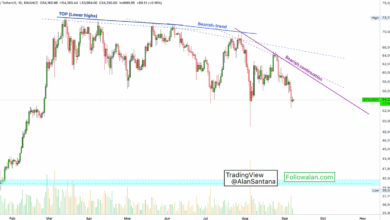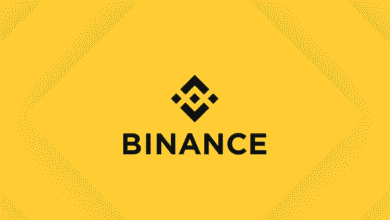Blockchain Development Company Rates 2025 Pricing Guide & Cost Factors

Understanding blockchain development company rates is crucial for businesses planning to enter the decentralized technology space. Whether you’re launching a cryptocurrency, building a DeFi platform, or creating NFT marketplaces, knowing what to expect in terms of development costs can make or break your project’s success. The blockchain development market has evolved significantly, with rates varying dramatically based on factors like project complexity, geographic location, and developer expertise.
In today’s competitive landscape, blockchain development company rates range from $25 per hour for junior developers in emerging markets to over $250 per hour for senior architects in premium locations. This comprehensive guide will help you navigate the pricing structure, understand what drives these costs, and make informed decisions when selecting your development partner.
Understanding Blockchain Development Pricing Models
Fixed-Price vs. Hourly Rates
Most blockchain development companies offer two primary pricing structures. Fixed-price projects work best for well-defined scopes with clear deliverables, typically ranging from $50,000 to $500,000 for complete blockchain solutions. Hourly rates provide more flexibility for evolving projects but require careful budget management.
The choice between these models significantly impacts your overall investment. Fixed pricing offers budget certainty but may include higher margins to account for scope creep. Hourly models allow for iterative development but can lead to cost overruns without proper project management.
Retainer-Based Engagements
Many established companies prefer retainer arrangements for ongoing blockchain development. These typically involve monthly commitments ranging from $20,000 to $100,000, providing dedicated development resources and priority support. Retainers often result in better rates compared to project-based pricing.
Blockchain Development Company Rates by Region
North America
United States and Canadian blockchain development companies command premium rates due to their established expertise and regulatory compliance knowledge. Senior blockchain developers typically charge $150-$250 per hour, while junior to mid-level developers range from $80-$150 per hour.
The higher costs in North America often justify themselves through faster development cycles, better communication, and a deeper understanding of regulatory requirements. Companies in Silicon Valley and New York tend to charge at the upper end of these ranges.
Europe
European blockchain development rates vary significantly by country. Western European countries like Switzerland, Germany, and the UK charge $100-$200 per hour for senior developers. Eastern European countries like Ukraine, Poland, and Romania offer competitive rates of $40-$100 per hour while maintaining high quality standards.
The European market offers an excellent balance of cost-effectiveness and technical expertise. Many companies choose European partners for their timezone compatibility with North American businesses and strong English proficiency.
Asia-Pacific
Asian markets provide diverse pricing options. Countries like Singapore and Australia command rates similar to Western markets ($120-$180 per hour), while India, the Philippines, and Vietnam offer more budget-friendly options ($25-$75 per hour). The quality varies significantly, requiring careful vendor selection.
India has emerged as a major blockchain development hub, with numerous companies offering comprehensive services at competitive rates. However, communication challenges and time zone differences can impact project timelines.
Factors Affecting Blockchain Development Company Rates

Project Complexity and Technology Stack
The complexity of your blockchain project directly influences development rates. Simple smart contracts might cost $5,000-$15,000, while complex DeFi protocols can exceed $200,000. The choice of blockchain platform also impacts pricing, with Ethereum development typically costing more than other platforms due to its complexity and security requirements.
Custom blockchain development represents the highest complexity tier, often requiring 6-18 months of development time and budgets exceeding $500,000. These projects demand specialized expertise in cryptography, consensus mechanisms, and distributed systems architecture.
Developer Expertise Level
The experience level of developers significantly impacts rates. Junior developers with 1-2 years of blockchain experience typically charge $25-$75 per hour. Mid-level developers with 3-5 years of experience command $75-$150 per hour. Senior developers and blockchain architects with 5+ years of specialized experience can charge $150-$300 per hour.
Specialized skills like zero-knowledge proofs, layer-2 solutions, or cross-chain interoperability command premium rates. Companies with proven track records in specific niches like DeFi or gaming often justify higher rates through their domain expertise.
Security and Audit Requirements
Projects requiring extensive security measures and third-party audits incur additional costs. Security audits alone can cost $15,000-$75,000, depending on project complexity. Companies specializing in high-security applications typically charge 20-30% premium rates due to their rigorous development processes.
Formal verification and extensive testing protocols add significant time and cost to the project, but are essential for applications handling substantial value. Insurance and compliance requirements in regulated industries further increase development costs.
Types of Blockchain Development Services and Their Costs
Smart Contract Development
Smart contract development forms the foundation of most blockchain applications. Simple contracts for tokens or basic functionality typically cost $3,000-$15,000. Complex contracts involving multiple interactions, oracles, and governance mechanisms can range from $25,000-$100,000.
The cost varies significantly based on the blockchain platform. Ethereum smart contracts require gas optimization and security considerations that increase development time. Newer platforms like Solana or Polygon may have lower development costs but potentially limited developer expertise.
DeFi Protocol Development
Decentralized Finance protocols represent some of the most complex blockchain applications. Basic lending protocols start around $75,000, while comprehensive DeFi ecosystems with multiple interconnected protocols can exceed $500,000. The complexity stems from financial logic, security requirements, and extensive testing needs.
Automated Market Makers (AMMs), yield farming protocols, and algorithmic stablecoins require specialized financial engineering expertise. Companies with proven DeFi experience command premium rates but deliver more secure and efficient solutions.
NFT Marketplace Development
NFT marketplace development costs vary based on features and scalability requirements. Basic marketplaces with standard buy/sell functionality typically cost $30,000-$75,000. Advanced platforms with auction mechanisms, royalty systems, and cross-chain compatibility can reach $150,000-$300,000.
The choice of blockchain impacts both development costs and ongoing operational expenses. Ethereum-based NFT platforms face high transaction costs, driving interest in alternative chains with different development requirements and cost structures.
Enterprise Blockchain Solutions
Enterprise blockchain solutions require extensive customization and integration capabilities. Supply chain tracking systems typically cost $100,000-$500,000, depending on complexity and integration requirements. Healthcare blockchain applications face additional regulatory compliance costs.
Enterprise projects often require private or consortium blockchain implementations, adding complexity around governance, permissioning, and consensus mechanisms. The longer development cycles and extensive documentation requirements contribute to higher overall costs.
How to Evaluate Blockchain Development Company Rates

Portfolio and Track Record Assessment
When evaluating blockchain development companies, examine their portfolio of completed projects. Companies with proven success in similar projects justify higher rates through reduced risk and faster delivery. Look for projects with similar complexity, technology stack, and industry requirements.
Client testimonials and case studies provide insight into development processes, communication quality, and post-launch support. Companies with strong portfolios often command premium rates but deliver more predictable outcomes and fewer post-launch issues.
Technical Expertise Validation
Assess the technical depth of potential development partners through detailed technical discussions. Companies should demonstrate e deep understanding of blockchain fundamentals, security best practices, and relevant development frameworks. Request detailed technical proposals that outline architecture decisions and implementation approaches.
Open-source contributions and thought leadership in the blockchain community indicate genuine expertise. Companies with team members contributing to blockchain protocols or publishing research typically command higher rates but bring valuable insights to projects.
Communication and Project Management Capabilities
Effective communication significantly impacts project success and overall costs. Evaluate companies’ project management methodologies, reporting processes, and communication tools. Clear communication reduces misunderstandings that lead to scope creep and cost overruns. Time zone alignment and language proficiency affect project efficiency. While companies in different time zones may offer lower rates, coordination challenges can offset cost savings through extended project timelines.
Cost Optimization Strategies
Scope Definition and Phase Planning
Clear scope definition prevents cost overruns and ensures accurate pricing. Break complex projects into phases with defined deliverables and success criteria. This approach allows for better budget control and enables iterative refinement of requirements. Consider starting with a minimum viable product (MVP) to validate core concepts before investing in full-scale development. This strategy reduces initial costs and provides valuable market feedback for feature prioritization.
Technology Stack Selection
The choice of blockchain platform significantly impacts development costs. While Ethereum offers the largest ecosystem, alternative platforms like Binance Smart Chain, Polygon, or Solana may provide cost advantages for specific use cases.
Consider long-term implications, including transaction costs, scalability limitations, and ecosystem development, when making platform decisions. Sometimes higher upfront development costs result in lower operational expenses and better user experiences.
Development Team Structure Optimization
Hybrid team structures combining senior architects with junior developers can optimize costs while maintaining quality. Senior team members handle critical architecture decisions and security reviews while junior developers implement well-defined components. Consider augmenting in-house teams with specialized blockchain expertise rather than outsourcing entire projects. This approach builds internal capabilities while leveraging external expertise for complex components.
Latest Trends Affecting Blockchain Development Rates
Layer-2 Solutions and Scalability
The growing adoption of Layer-2 solutions like Arbitrum, Optimism, and Polygon is creating new development specializations. Companies with expertise in these scaling solutions command premium rates due to limited talent availability and high demand. Cross-chain interoperability solutions represent another high-demand specialization. Projects requiring multi-chain deployment or bridge development face higher costs due to complexity and security requirements.
Regulatory Compliance Integration
Increasing regulatory scrutiny is driving demand for compliance-aware blockchain development. Companies with experience in KYC/AML integration, regulatory reporting, and jurisdiction-specific requirements charge premium rates for this specialized knowledge.
Privacy-preserving technologies like zero-knowledge proofs are becoming essential for regulatory compliance. Development teams with zk-SNARK or zk-STARK expertise command significantly higher rates due to the specialized mathematical and cryptographic knowledge required.
Integration with Traditional Finance
The convergence of traditional finance and DeFi is creating new development requirements. Companies capable of integrating blockchain solutions with existing financial infrastructure charge premium rates for their specialized expertise. Central Bank Digital Currency (CBDC) development represents an emerging high-value niche. The regulatory requirements and institutional-grade security needs result in premium pricing for qualified development teams.
Also Read: Blockchain in Cryptocurrency An In-Depth Explanation
Conclusion
Understanding blockchain development company rates requires careful consideration of multiple factors, including geographic location, project complexity, developer expertise, and technology requirements. While costs may seem high compared to traditional development, the specialized nature of blockchain technology justifies premium pricing for quality development services.
The key to successful blockchain development lies in finding the right balance between cost and quality. Don’t simply choose the lowest-priced option; instead, evaluate companies based on their track record, technical expertise, and ability to deliver secure, scalable solutions.
As the blockchain industry continues to mature, we expect to see more standardized pricing models and increased competition among development companies. However, specialized skills in areas like DeFi, Layer-2 solutions, and regulatory compliance will continue to command premium rates.




